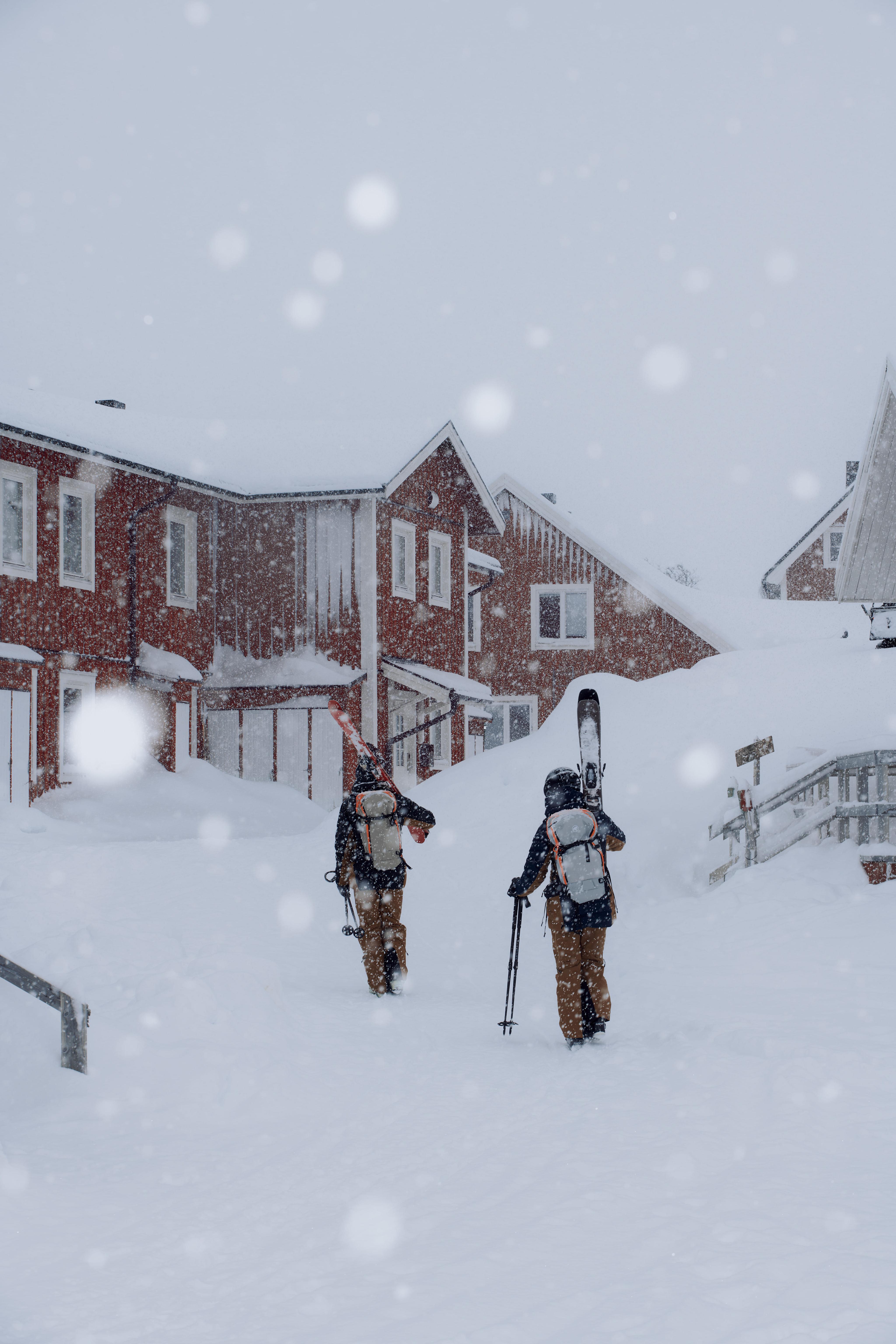Mammut Skitouring
Erduklartilsæsonen?
10/2021

Tjek din Barryvox
1. Batteritest
Tjek din Barryvox inden hver skitur, ideelt set inden du forlader hjemmet. For at gøre dette, skal du tænde enheden og bemærke skærmen for selvtest og batteritest. Svage batterier skal udskiftes øjeblikkeligt
2. Skade og urenheder
Kontrollér også regelmæssigt enheden for mekanisk skade og urenheder. Især skal du sørge for, at batterikontakterne er rene og uskadte, og at hovedafbryderen fungerer korrekt
3. Uoverensstemmelser
Hvis du bemærker nogen inkonsekvenser under din kontrol, er det vigtigt at sende din enhed til et Mammut Barryvox servicecenter til yderligere undersøgelser.
Du kan finde fuld information om din BarryvoxHer
Generelt eftersyn og vedligeholdelse
Tjek dit airbagsystem før og efter hver brug for tegn på skader og slid, såsom revner i huset, buler, synlig trådning osv. Tjek rygsækken, skulderremmene og hoftebæltet for huller, flænger og beskadigede sømme. Hvis airbagsystemet bliver vådt, så udbred det fladt og lad det tørre. Inden hver brug, kontroller airbagsystemet for at sikre, at det fungerer korrekt.
For at gøre dette, skal du følge beskrivelserne og illustrationerne nedenfor:
1. Installering af Airbag Systemet
Sørg for, at airbagsystemet er installeret korrekt. For at gøre dette, åben lynlåsen på airbagballonposen fra midten og skub lynlåstrækkeren mod højre. Airbagsystemet skal ligge over den grå rem (rød i illustrationen).
2. Attach the Airbag
Make sure the airbag is not attached the wrong way round.
3. Airbag System Pocket
The airbag system pocket must be closed.
4. Deployment Handle
The deployment handle must not be wound around the airbag system.
5. Airbag Buckles
The four colored airbag buckles must be threaded through the appropriate loops from the bottom to the top.
6. Folding the Airbag Ballon
CAUTION: The airbag balloon must not be rolled up but must be folded for packing as follows. Check the airbag balloon for any holes or tears before folding.
7. Holding the Airbag together
To hold the folded airbag together, close the hook and loop fastener over the airbag opening, carefully close the zipper and attach to the loop.
8. Deployment handle hook
The hook of the deployment handle must be pushed securely into the loop.
9. Cartridge Pressure
Make sure the pressure in the cartridge is correct and that the cartridge is completely screwed in and secured.
Cartridge with manometer:
at room temperature (20° C/68° F), the arrow must be in the green area.
Cartridge without manometer:
the weight of the cartridge, without the protective cap, must be the same as the weight stated on the cartridge (+/- 5 g).
10. Cartridge assembly
Screw the cartridge all the way into the mechanism, secure it in the pocket using the hook and loop fastener and close the pocket.
CAUTION: The cartridge is completely screwed only when the black rubber seal is no longer visible.
11. Training Deployment
Perform at least one training deployment each season. This will allow you to familiarize yourself with the system and ensure you can act quickly and intuitively in an emergency. To avoid having to fold the avalanche airbag again after a training deployment, you can use the trigger test tool to very easily carry out a test deployment without a pressure cartridge.
To do this, screw the trigger test tool all the way into the deployment mechanism.
Warning: The trigger test tool must not be overtightened.
12. Test Deployment
Put the avalanche backpack on for the test. In order to make the situation as realistic as possible, we recommend wearing your skiing clothes during the test deployment. Deploying the airbag while wearing gloves is particularly good practice. To deploy the airbag, pull the deployment handle hard and decisively. After the test, unscrew the trigger test tool from the deployment mechanism again.